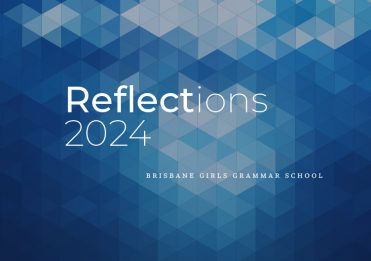Stress. Worry. Panic. Determination. Resolve. Focus. Calm. Relief. Joy. Laughter. Sadness. Tears. Acceptance.
The ebb and flow of school life carries with it a vast array of emotions—a veritable tumult of highs and lows, soaring peaks that are wished to never end, and at times, valleys hidden in shadow that may seem to have no end. And, this cacophony of emotions is just over assessments, let alone the other activities inherent in school life.
I have been reminded of late of the emotional range experienced during periods of high assessment, be that individual or across a cohort. The reminders came as I watched the recent Year 12 and 11 exam blocks, the Year 7 and 9 students undertake NAPLAN testing, and during the rich conversations in the one-on-one Year 12 Academic Planning Meetings.
As the Dean of Studies, it might seem fitting to talk about the role of assessments in providing evidence of scholastic learning, as a tool in identifying areas for future learning, or maybe about appropriate study habits and strategies to achieve one’s best academically. However, I wish to take a different tack: assessment as a time of emotional growth and learning.
No human endeavour is undertaken free from the thousand emotions that human flesh is heir to (my apologies to Shakespeare for appropriating and amending, even butchering, his work). Equally, life is not devoid of demands, pressures and challenges. Our ability to understand our emotions in such situations—learning how to best respond to them—as opposed to being overwhelmed by them or trying to simply deny them, can help us confront challenges in a more controlled manner. Thus, we can become more the master of the situation than be at the mercy of it. With such an understanding of our emotional self, we would know that fear or anxiousness can be breached and not hold us back; or to embrace and relish the joy in accomplishment without getting lost in a sense that happiness must always be there; or also, accepting disappointment, though troubling, is but fleeting, if you allow it to be such.
Where can children and young adults experience such challenges in a safe environment? Where can they be placed in a maelstrom of emotions and learn to find a path through, while there is support and guidance close at hand? Where can they learn the emotional skills that will, in time, help them step out into an adult world? The obvious answer is at their homes, with the oversight of parents close by. However, I would contend that schools, with oversight from teachers, Heads of House and councellors, and in fact assessments, form a major avenue for such emotional learning.
Assessments are far more than instruments to demonstrate subject knowledge or a mechanism to obtain a grade; they provide an opportunity for true self-reflection. A reflection in time of demand, a reflection of emotional regulation and a reflection on emotional growth.
So, to all our students having just undertaken, or about to commence assessments, I wish them every success in their academic learning and also their emotional learning. I hope that they see them as a true opportunity for growth, reflection and afterwards, of course, enjoy the well-deserved holiday break.




